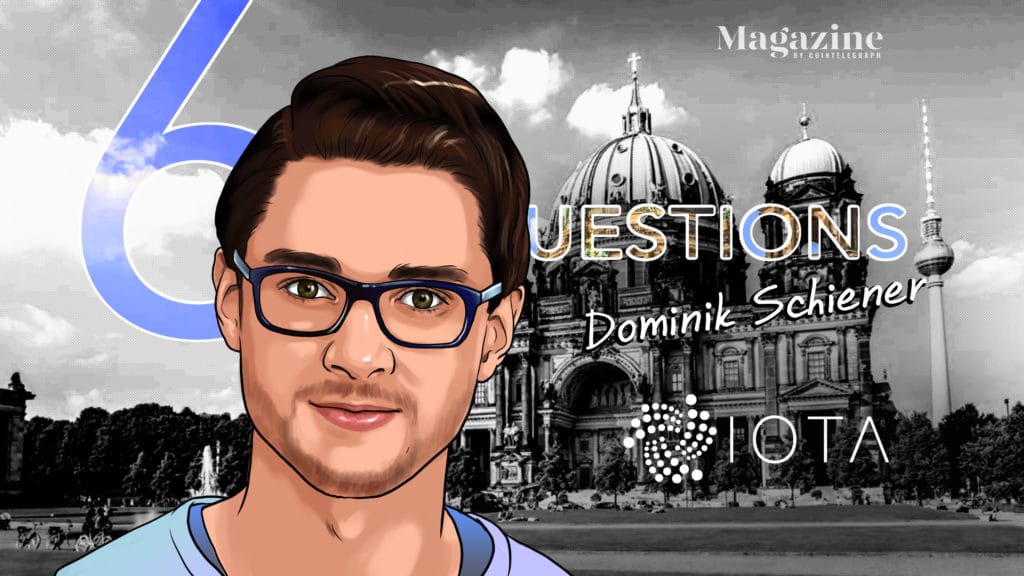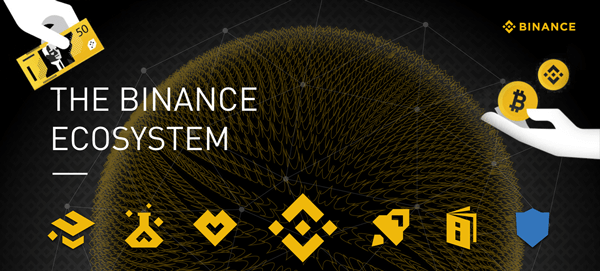
We ask the buidlers in the blockchain and cryptocurrency sector for their thoughts on the industry… and throw in a few random zingers to keep them on their toes!
This week, our 6 Questions go to Dominik Schiener, a co-founder of the Iota Foundation, a nonprofit organization, and the creator of the Tangle, a permissionless, multi-dimensional distributed ledger designed as a foundation of a global protocol for all things connected.
Dominik Schiener is a co-founder and the chairman of the Iota Foundation, one of the largest and greenest cryptocurrency ecosystems in the world. The Iota Foundation’s mission is to support the research and development of new distributed ledger technologies, including the Iota Tangle. Raised in Italy, Dominik oversees partnerships and the overall realization of the project’s vision toward the machine economy. He is a strong advocate for research-based, community-vetted, transparent developments in the cryptocurrency sector.
1 — If you were investing in startup companies right now, what kind of blockchain-based business opportunity would catch your eye?
I’d go all-in on startups focused on the intersection of Web2 and Web3. We’re in a transitional period that’s going to last for a long time, and embracing this ongoing transition is smart from both a financial and technical point of view. Companies helping the centralized world move into the decentralized one — and vice versa — are the present and the future. This includes crypto banking, fiat gateways, NFT marketplaces, and so on. The biggest barriers to adoption are user experience, not scaling. Focusing on and investing in UX is the road to mass adoption and to the new world of Web3.
2 — Which people do you find most inspiring, most interesting, and most fun in this space?
I’m drawn to people who have endured and risen above hardship in their personal and professional lives and have become more capable leaders as a result. Naturally, I’m inspired by people like Vitalik Buterin within the crypto space, but I also admire Ray Dalio, whose innovations — and thinking — transformed traditional finance long before crypto even existed.
3 — What is the single most innovative use case for blockchain you’ve ever seen? It may not be the one likeliest to succeed!
I’m increasingly enthusiastic about algorithmic stablecoins. I’m fascinated by their mechanics and their possibilities. They are, of course, highly experimental, and some may just fail, causing investors to lose millions. Even so, these stablecoins have enormous potential to onboard retail investors and offer a new way to transact. I believe they are crucial to mainstream adoption, so I certainly hope they’re likely to succeed.
4 — What’s the most interesting place you’ve ever visited, and why?
I’m a mountain guy. I grew up in the Alps, so I’m probably a little biased. My favorite places are remote areas in the mountains, where you’re far from civilization and can really take a moment to step back, reflect, and appreciate the beauty of our world. That kind of tranquility is the best way to take a break from the crypto madness. I love being in a place where the only reminder of the modern world is the occasional airplane overhead. I love Südtirol [in northern Italy] in particular.
5 — Which movie alternate universe would you most like to live in, and why?
I’m going to go with Avatar. It’s such a stunningly gorgeous and fully realized world. I love the look of that movie and the deep importance it places on the interconnectedness of nature. If I’m a nature guy on Earth, I figure I’m a nature guy on other planets, too. Living in an alternate reality and becoming part of the Na’vi tribe sounds like an amazing exploration adventure.
6 — What should we be teaching our kids?
Financial literacy still isn’t the priority — it should be within education, and the sooner that changes, the better. I also think there needs to be a bigger emphasis on philosophy and, more specifically, ethics. Science and technology are developing more rapidly than ever before in human history, and we simply can’t have a generation that is unable to think critically about the human element of these developments. We know about the dangers of technical advancement without ethical boundaries — there are countless dystopian movies about exactly this! — and its importance cannot be understated.
A wish for the young, ambitious blockchain community:
That we never forget why we’re here. It’s not about getting rich quick. It’s about removing centralization and abuses of power to lead billions of people to prosperity and abundance through decentralized technologies.





